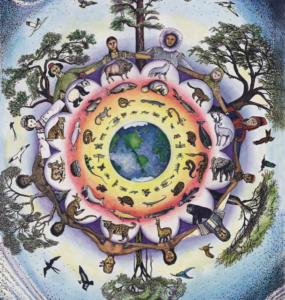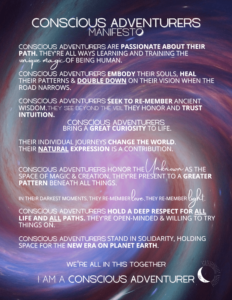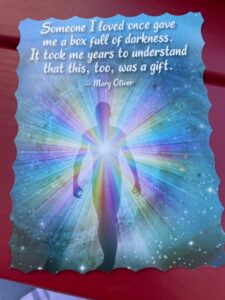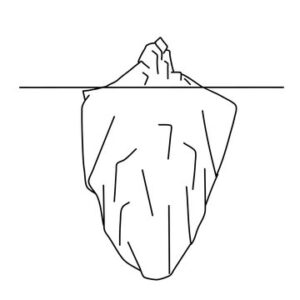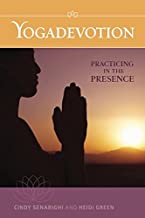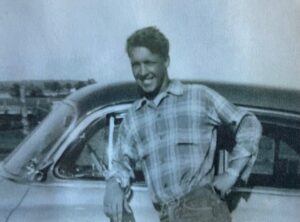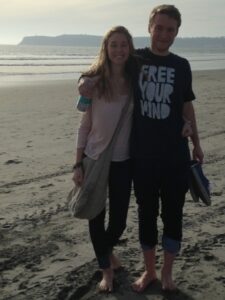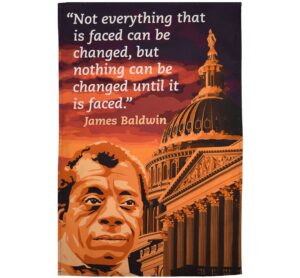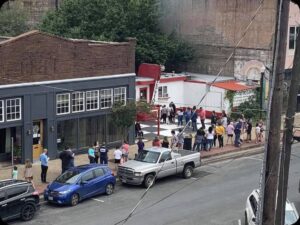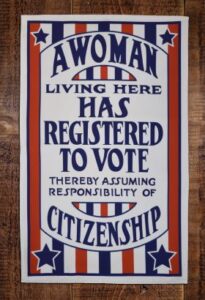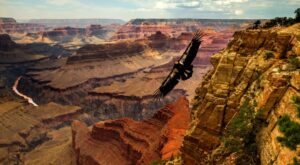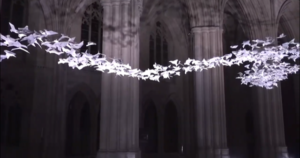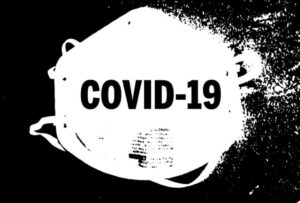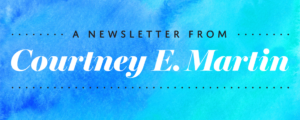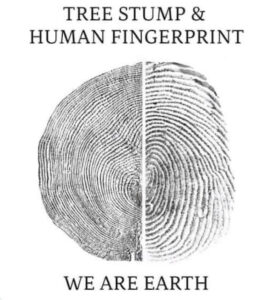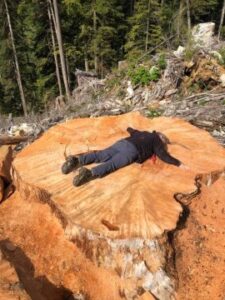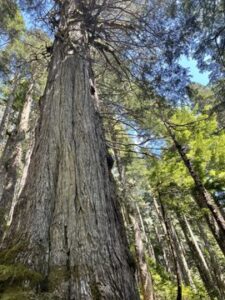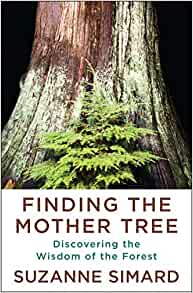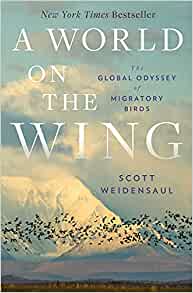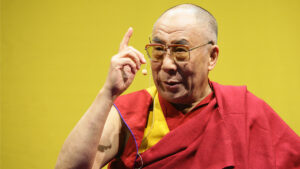Center for Action & Contemplation
June 27, 2021One of the goals that is emphasized in our culture is finding answers—solving problems, answering questions, removing doubt. We want to know who, what, when, where, and why—and we want to know now. When we listen, we are trained to listen for the answers. . . .
Reflective listening distinguishes a response from an answer. It is a practice to get to know your inner voice, and it takes time and patience.
“Not knowing what to do is the work for you now.” -Francesca
“Live the questions now. Perhaps you then may gradually, without noticing, one day in the future live into the answers.” -Rilke
[Image by Lily Qian, © All Rights Reserved.]
Joanna Macy and Anita Barrows
‘What a world you’ve got inside you.’
U.S. Secretary of the Interior Deb Haaland
“They tried to bury us. They didn’t know we were seeds.”
-Ruth H. Hopkins
John McAfee
June 23, 2021“In a democracy, power is given not taken. But it is still power. Love, compassion, caring have no use for it. But it is fuel for greed, hostility, jealousy … All power corrupts. Take care which powers you allow a democracy to wield.”
6.23.21
Magic.
Allysha Levino:
RIGHT NOW, those of us who are CHOOSING CONSCIOUSNESS are gathering our tools and training, trusting our intuition, and hoping that humans will make the great evolutionary leap toward a world that works for everyone.
Wherever this roller coaster takes us, we’re all in this together!
So here’s my BIG QUESTION for you today:
→ What are YOU Noticing?
- Are you sailing through feeling graceful?
- Are you seeing everything in the old paradigm that doesn’t work anymore?
- Is your body or mind struggling to make the leap?
- Are you feeling the tension of the widening gap?
Noticing can help us reach a place of equanimity no matter where we are on the journey… and wherever you are right now is perfect.
Notice. Trust. Breathe.
It is important to consider what we might know about ourselves and how we interact or respond in the ways we do, or what we perceive or believe about our own faith, theology, and identity. As we endeavor to live fully into this notion of belovedness, we must be introspective and self-aware, carefully uncovering and discovering our most authentic selves while staying connected to Spirit, utilizing the resources of prayer and other spiritual practices. This is the basis of how we live out our spirituality.
Father Richard Rohr, Center for Action & Contemplation
Full moon update for Thursday, June 24th from Power Path:
This is an optimistic time, and could be very prosperous if you can move through the challenges of the distractions of drama and ego-driven negative behaviors in yourself and in others that may crop up. Honesty, emotional vulnerability, humility and a good spiritual base are important foundational aspects for success during this time. It can be a very expansive time especially if you can harness the positivity and optimism. It is a good time to reflect on the containers of your life. What is too small, too big, completed etc. We have some good momentum to initiate the creation of some new containers for ourselves for this cycle.
One the one hand you have the excitement and inspiration of a new container and new possibilities for expansion and partnerships. On the other hand, you may have the personal challenges of self doubt and sifting through some of the negative aspects of your personality that may get in the way of truth and clarity of intention. Even though the energy is moving more freely now, there is still some residual tension around restrictions, delays and right timing. Be patient, enjoy the process, love your friends and community, have a little gratitude, be creative.
Covid’s Delta
The New Yorker
The Delta Variant Is a Grave Danger to the Unvaccinated
One half of America is protected. The other is approaching a perilous moment in the pandemic.
by Dhruv Khullar, a contributing writer at The New Yorker, is a practicing physician and an assistant professor at Weill Cornell Medical College.
Experts believe that the Delta variant is 60% more transmissible than Alpha, or the UK variant.
The variant now represents more than 20% of coronavirus infections in the U.S. in the last two weeks, or double what it was when the CDC last reported on the variant’s prevalence. [USA Today]
“The good news is that we have vaccines that can squash the Delta variant,” Eric Topol, the director of the Scripps Research Translational Institute, told me. “The bad news is that not nearly enough people have been vaccinated. A substantial share of Americans are sitting ducks.” He went on, “We haven’t built a strong enough vaccination wall yet. We need a Delta wall”—a level of vaccination that will prevent the new variant from spreading. “There are still large unvaccinated pockets in the country where this could get ugly,” Topol added. Because about half of Americans are vaccinated, and millions more have some immunity from prior infection, the Delta variant “won’t cause monster spikes that overwhelm the health system,” Topol said. But Delta spreads so easily among the unvaccinated that some communities could experience meaningful increases in death and disease this summer and fall.
In a recent piece, I likened a society that’s reopening while partially vaccinated to a ship approaching an iceberg. The ship is the return to normal life and the viral exposure that it brings; the iceberg is the population of unvaccinated people. Precautions such as social distancing can slow the speed of the ship, and vaccination can shrink the size of the iceberg. But, in any reopening society that’s failed to vaccinate everyone, a collision between the virus and the vulnerable is inevitable.
Because of its exceptional transmissibility, the Delta variant is almost certain to intensify the force of the collision. The U.K., by postponing a full reopening, is trying to soften the blow. But the U.S. is pressing ahead—perhaps out of hubris, or because officials hope that our vaccination campaign can outrun the spread of Delta. Last week, New York and California, among the pandemic’s hardest-hit states, did away with virtually all restrictions. Meanwhile, states with half the vaccination rates of New York or California have been open for weeks. A lot depends on where, and how fast, Delta is spreading.
AXIOS:
The rapid spread of the B.1.617 (Delta) variant first discovered in India is making the second dose “more important now than ever before,” state epidemiologist Rachel Herlihy said Monday.
- Colorado has the second-highest proportion of the variant in the nation and the fifth-highest overall positivity rate.
The Guardian:
‘Two Americas’ may emerge as Delta variant spreads and vaccination rates drop
Biden’s 70% vaccination target by Fourth of July likely to fall short as efforts to entice people to get shots have lost their initial impact
“I certainly don’t see things getting any better if we don’t increase our vaccination rate,” Scott Allen of the county health unit in Webster, Missouri, told Politico. The state has seen daily infections and hospitalizations to nearly double over the last two weeks.
Only 52% of Republicans said they were partially or fully vaccinated, and 29% said they have no intention of getting a vaccine, according to a CBS News/YouGov poll. 77% of Democrats said they were already vaccinated, with just 5% responding that were resisting the vaccine.
“I call it two Covid nations,” Peter Hotez, a vaccine researcher at Baylor College of Medicine in Houston, told BuzzFeed News.
Bette Korber, a computational biologist at the Los Alamos National Laboratory in New Mexico, said she expected variant Delta to become the most common variant in the US within weeks. “It’s really moving quickly,” Korber told Buzzfeed.
Unconditional Compassion
June 22, 2021Since 2010, Flourish Foundation has innovated and facilitated programs that nurture life skills and transformation through ethics and values, meditation and experiential Inquiry.
The heart of our work focuses on revealing our human potential for leading a wise, moral and compassionate life. Through our tenure as a social-profit we have seen that nurturing this potential individually and collectively empowers us all to naturally care for ourselves, each other and the planet.
“Safeguarding the future is not just a matter of laws and government regulations: it also requires individual initiative. We need to change our way of thinking and to close the gap between perception and reality. — Tenzin Gyatso the 14th Dalai Lama
“Having mindfulness as a regular part of our week has gone a long way to making it a regular part of our lives. That we take and make this time to work on focus, clarity, and relaxation, that we discuss kindness and intentionality- these are all key elements of our school, and key components of how we think we can help develop teenagers who are thoughtful and engaged — Harry Weekes, Head of School, The Sage School
📿
June 21, 2021Prime Minister of Bhutan:
“Happy to be observing a day that reinforces importance of health and replenishes our spirit during such stressful times. It reminds me of Shri Narendra Modi whose passion pushed him to propose this ancient tradition on the calendar.”
Change leads to disappointment if it is not sustained. Transformation is sustained change, and it is achieved through practice.”
-B.K.S. Iyengar
“A sustained yoga lifestyle is one that doesn’t fluctuate with the latest trends but is informed by the historic yoga philosophies of peace, no harm, discipline, and contentment.
We need to choose practices that are life affirming rather than draining in order for them to be transformative the practices we choose need to benefit not only our personal lives but our relationship with Gaia and with each other.”
-Cindy Senarighi and Heidi Green
If one knows what the particular disease is there is the possibility of curing it. To know the particular limitation, bondage or hindrance of the mind, and to understand it, one must not condemn it, one must not say it is right or wrong. One must observe it without having an opinion, a prejudice about it, which is extraordinarily difficult because we are brought up to condemn.
-J. Krishnamurti
“What would it mean to simply acknowledge our behavior without judgment, without denial, without hedging? Right now, in this moment, can you control your habitual responses to experience? Can any of us not be afraid?
As we observe other individuals, companies, political parties, and nations, we tend to bring the same kinds of judgments to bear, expecting different results.”
-Rolf Gates and Katrina Kenison
Go to the mat. -dayle
ℒℴve
Dad.
June 20, 2021Robert Dale Ohlau
‘Bobby D’
1937-2017
“It’s a beautiful day. It’s always a beautiful day.”
“How do you eat the elephant? One bite at a time.”
“That’s the way the cookie crumbles.”
I miss you, dad.
♡
We love you.
Cat. For ‘D’.
H A P P Y S U M M E R S O L T I C E ❗️
Every morning is an opportunity for tender grace.
What are you going to do that will bring grace, order, and beauty to your day?
-A. Stoddard
R
I
L
K
E
I can only measure the world in terms of longing.
The American Renaissance
June 17, 2021NYTimes
David Brooks
“In 1982, the economist Mancur Olson set out to explain a paradox. West Germany and Japan endured widespread devastation during World War II, yet in the years after the war both countries experienced miraculous economic growth. Britain, on the other hand, emerged victorious from the war, with its institutions more intact, and yet it immediately entered a period of slow economic growth that left it lagging other European democracies. What happened?
In his book “The Rise and Decline of Nations,” Olson concluded that Germany and Japan enjoyed explosive growth precisely because their old arrangements had been disrupted. The devastation itself, and the forces of American occupation and reconstruction, dislodged the interest groups that had held back innovation. The old patterns that stifled experimentation were swept away. The disruption opened space for something new.
Something similar may be happening today. Covid-19 has disrupted daily American life in a way few emergencies have before. But it has also shaken things up and cleared the way for an economic boom and social revival.
Millions of Americans endured grievous loss and anxiety during this pandemic, but many also used this time as a preparation period, so they could burst out of the gate when things opened up. After decades of slowing entrepreneurial dynamism, 4.4 million new businesses were started in 2020, by far a modern record. A report from Udemy, an online course provider, says that 38 percent of workers took some additional training during 2020, up from only 14 percent in 2019.
After decades in which consumption took preference over savings, Americans socked away trillions of dollars in 2020, reducing their debt burdens to lows not seen since 1980 and putting themselves in a position to spend lavishly as things open up.
The biggest shifts, though, may be mental. People have been reminded that life is short. For over a year, many experienced daily routines that were slower paced, more rooted, more domestic. Millions of Americans seem ready to change their lives to be more in touch with their values.
The economy has already taken off. Global economic growth is expected to be north of 6 percent this year, and strong growth is expected to last at least through 2022. In late April, Tom Gimbel, who runs the recruiting and staffing firm LaSalle Network, told The Times: “It’s the best job market I’ve seen in 25 years. We have 50 percent more openings now than we did pre-Covid.” Investors are pouring money into new ventures. During the first quarter of this year U.S. start-ups raised $69 billion, 41 percent more than the previous record, set in 2018.
Already, this era of new creation seems to be rebalancing society in at least three ways:
First, power has begun shifting from employers to workers. In March, U.S. manufacturing, for example, expanded at the fastest pace in nearly four decades. Companies are desperate for new workers. Between April 2020 and March 2021, the number of unemployed people per opening plummeted to 1.2 from 5.
Workers are in the driver’s seat, for now, and they know it. The “quit rate” — the number of workers who quit their jobs because they are confident they can get a better one — is at the highest in two decades. Employers are raising wages and benefits to try to lure workers back.
Second, there seems to be a rebalancing between cities and suburbs. Covid-19 accelerated trends that had been underway for a few years, with people moving out of big cities like New York and San Francisco to suburbs, and to rural places like Idaho and the Hudson Valley in New York. Many are moving to get work or because of economic distress, but others say they moved so they could have more space, lead slower-paced lives, be closer to family or interact more with their neighbors.
Finally, there seems to be a rebalancing between work and domestic life. Stanford economist Nicholas Bloom expects that even when the pandemic is over, the number of working days spent at home will increase to 20 percent from 5 percent in the prepandemic era.
While this has increased pressures on many women, millions of Americans who could work remotely found that they liked being home, dining every night with their kids, not hassling with the commute. We are apparently becoming a less work-obsessed and a more domestic society.
In 1910 the educator Henry Van Dyke wrote, “The Spirit of America is best known in Europe by one of its qualities — energy.” That energy seemed to be fading away in recent years, as Americans came to move less and start new businesses less frequently. But the challenge of Covid-19 has summoned forth great dynamism, movement and innovation. Labor productivity rates have surged upward recently.
Americans are searching for ways to make more money while living more connected lives. Joel Kotkin, a professor of urban studies at Chapman University, points out that as the U.S. population disperses, economic and cultural gaps between coastal cities and inland communities will most likely shrink. And, he says, as more and more immigrants settle in rural areas and small towns, their presence might reduce nativism and increase economic competitiveness.
People are shifting their personal lives to address common problems — loneliness and loss of community. Nobody knows where this national journey of discovery will take us, but the voyage has begun.”
The American Renaissance Has Begun
Magic. ✨
June 14, 2021Disenchantment.
It originally means, “no longer believing in magic.”
Humans like magic. It gives us solace and energy and hope.
In many ways, the rational era of science and engineering and evidence and proof eliminated any practical belief in magical forces. We know how and why the sun sets every night.
But we still desire magic.
Creating it is a gift.
~Seth Godin
And magic? Intentionally moving energy. Way better than hope. Let’s do some shifting. ~dayle
☆☆¸.•*¨*•☆☆•*¨*•.¸¸☆☆
Pride.
June 13, 2021C
O
M
M
U
N
I
T
Y
L O V E
T R U T H
Re-Release: The Stonewall Uprising/
You’re Wrong About Podcast
“In honor of Pride Month and revolutions past, present, and future, we’re re-releasing our episode on the Stonewall Uprising. Let the sunshine in.”
https://podcasts.apple.com/gb/podcast/re-release-the-stonewall-uprising/id1380008439?i=1000476881136
One love.
One love, one heart
Let’s join together and a-feel all right
One love (hear my plee)
One heart
Let’s join together and a-feel alright
Let’s join together (let’s just trust in the Lord)
And a-feel all right (and I will feel alright)
Five years ago in Orland, Florida, one 29-year old man with an automatic military weapon massacred 49 people and wounded 53 more at a gay night club called Pulse.
From the White House on Saturday, June 12, 2021:
In the coming days President Joe Biden will sign a bill designating Pulse Nightclub as a national memorial, enshrining in law what has been true since that terrible day five years ago: Pulse Nightclub is hallowed ground.
We must also acknowledge gun violence’s particular impact on LGBTQ+ communities across our nation. We must drive out hate and inequities that contribute to the epidemic of violence and murder against transgender women – especially transgender women of color. We must create a world in which our LGBTQ+ young people are loved, accepted, and feel safe in living their truth. And the Senate must swiftly pass the Equality Act, legislation that will ensure LGBTQ+ Americans finally have equal protection under law.
In the memory of all of those lost at the Pulse nightclub five years ago, let us continue the work to be a nation at our best – one that recognizes and protects the dignity and safety of every American.
In the name of love.
The Equality Act is in limbo. A lot is at stake for the LGBTQ community, especially our youth.
After its passage in the House in February, the Equality Act (H.R. 5) has one more hurdle before reaching the desk of President Joe Biden — the Senate. If passed, among other things, it will amend the Civil Rights Act of 1964 to include sexual orientation and gender identity as protected classes of people protected from discrimination in employment, housing, public accommodations, education and federally funded programs, and patch holes in current nondiscrimination protections.
-San Diego Union Tribune, Kimberly A. Ahrens
Fr. Richard Rohr:
Love for one another. May we place our hope in what matters and what lasts, trusting in your eternal presence and love. Listen to our hearts’ longings for the healing of our suffering world.
Nonviolence starts when we learn how to love ourselves with compassion. Upon beginning shadow work and looking within myself, I was able to heal old wounds, relearn healthy boundaries and thought patterns. Complete love flows through all we say, do, think, and pray after taking steps of transformation. -Susan C./Center for Action and Contemplation
“Moments as big as years.” Virginia Woolf
A bakery lost a client when it made rainbow Pride cookies. So others bought every item in the shop.
Within an hour, the small business near the eastern edge of Texas lost dozens of followers on social media. Not long after, a peeved patron canceled an order she had placed for five dozen cookies.
Little did she know, though, that her post would go viral on social media and that the line outside the tiny bakery would stretch for several blocks the following day.
Though the bakery opened at 10 a.m., a crowd had already assembled outside the front door by 8:30 the next morning.
“That line brought me to tears. All those people standing in the rain, waiting so patiently to buy a cookie,” Cooley said. “We just wanted to be inclusive, and it was so heartwarming to see how many people felt the same.”
Over the following few days, a steady stream of hundreds of customers arrived to show their support.
“The line just never ended. I had people buying cookies for the person behind them, buying cookies and handing them out to the kids outside. It was beautiful.” Dolder said. “They weren’t going to let this little bakery take a financial hit for showing love and acceptance for the gay community.”
https://www.washingtonpost.com/lifestyle/2021/06/09/pride-month-rainbow-bakery-customer/
The day after Confections received backlash for supporting Pride Month, hundreds of customers lined up to buy cookies and show their support. (Jay Eagle)
She was first.
June 11, 2021“It’s Jeannette Rankin’s birthday! This exceptional Montanan was the first woman elected to Congress. Jeannette’s proud legacy of standing up for her beliefs has long served to inspire folks across our state, and will for years to come.”
-Montana Senator Jon Tester
“Suffrage activist from Missoula County, Montana, Rankin was elected Congresswoman for her home state in 1916, four years before the 19th Amendment.
Thanks to the struggle of women like Rankin, Montana had abolished the sex-based franchise in 1914, making it the seventh US State to do so.
With the help of the political allies she had made campaigning for suffrage, Rankin was then elected to the House of Representatives on the progressive wing of the Republican Party.
This made Rankin the first woman in the history of the US Congress.
But, while there was now one Congresswoman, there were still millions of American women legally voteless.
It wasn’t until the 19th Amendment was passed in 1920 that women across America were given the right to vote.
So, with work left to be done, Rankin used her new position in Congress to at last drive through a constitutional amendment enfranchising women.
She was the one who first put forward what became the 19th Amendment – the ultimate triumph of her movement.
But suffrage was not the only thing on Rankin’s agenda. The late 1910s were not, after all, a quiet time in US political history…
In April 1917, Woodrow Wilson summoned Congress to an extraordinary session so that he could get the US to declare war on Germany and join the conflict in Europe.
Jeannette Rankin was one of only 50 members of Congress to vote against Wilson. A devout pacifist, she would not support America entering WW1.
Singled out for disproportionate abuse by the pro-war lobby, Rankin got support from the radical movement which was then mobilizing against the war. Figures like Fiorello LaGuardia and fellow suffrage fighter, Alice Paul, (my s-hero) backed Rankin.
On 8 December 1941, to a chorus of heckles, she was the only member of congress to vote against declaring war on Japan, saying, “as a woman I can’t go to war, and I refuse to send anyone else.”
Whilst many credentialed radicals did criticize Rankin’s failure to appreciate the unique nature of WW2 as a war which needed to be fought against fascism and genocide, the subsequent hounding and denunciation of her in the US press was unconscionable.
Her political reputation left in tatters, Rankin declined to run again in 1942.
But she lived a long life after the Second World War – long enough to return to radical fame as an elder in the struggle against the US invasion of Vietnam in the 1960s and ‘70s.
In January 1968, when she was 87 years old, Jeannette Rankin marched through D.C. at the head of 5,000 women protesting against the Vietnam War.” Right on.
-Pete, Radical Tea Towel https://www.radicalteatowel.com
Today at the G7, Boris Johnson:
think that is what the people of our countries now want us to focus on. They want us to be sure that we are beating the pandemic together and discussing how we will never have a repeat of what we have seen but also that we are building back better together,’ he said.
‘Building back greener and building back fairer and building back more equal and, how shall I, in a more gender neutral and, perhaps a more feminine way. (Yep.)
The Eagle and the Condor prophecy of the Amazon speaks of long ago when human societies split into two different paths—that of the Eagle and that of the Condor. The path of the Condor is the path of heart, of intuition, and of the feminine. The path of the Eagle is the path of the mind, of the industrial, and of the masculine. [https://blog.pachamama.org]
For whom the bell tolls…
June 10, 2021As our nation marks 600,000 lives lost to the COVID-19 pandemic, Washington National Cathedral will toll its mourning bell 600 times — once for every 1,000 dead — on Thursday (June 10) starting at 5 pm ET. We toll this 12-ton bell for every funeral held at the Cathedral. Funerals mourn the loss, but they also celebrate the lives of our loved ones, and point us to the hope of resurrection. This gesture cannot replace the lives lost, but we hope it will help each American mourn the toll of this pandemic.
[Replay]
“Are you surprised by your own behavior and desires right now? Fighting with your partner or spouse? Pushing back against a board that wants to go back to the old organizational strategy? Crying on airplanes? Drinking again? Giving up drinking finally? Liking music you’ve never liked? Not liking the kinds of books you’ve always loved? Feeling weird in your body? Ruminating on social interactions more than ever before?
It’s not you. It’s us. It’s this moment.
We’re becoming something that we’ve never been before. Some of us are tentatively excited about this. Sort of tiptoeing into a new dance. Some of us, especially those for whom the old reality was working pretty well, are in lizard brain: GO BACK GO BACK FORGET THIS BREAKING-OPEN-AND-QUESTIONING-EVERYTHING SHIT LET’S GO BACKKKKKKKK!
But there is no “back.”
2020 changed us in fundamental ways. No matter who you are or were. This is always true—time marches forward and tweaks and transforms us along the way—but never has it been more true, in my lifetime at least, than this moment. We were someone, some neighborhood, some nation before covid hit and schools closed and bodies piled up and Breonna Taylor was murdered and we all gathered on zoom all the time and the capitol was invaded and monuments were pulled down and vaccines were invented and hoarded…
and we are now, today, someone else, some other neighborhood with different understanding of public space and belonging, some other nation that is straining to rise to its own moment rather than retreating to the shadows of a less consciousness, less thin time.
For me, I’m realizing, it feels on par with the profound transformation I experienced while becoming a mother—a before and an after, a me that was and a me that will never be again.
I used to watch my daughters sleep. Sometimes I still do. And the gratitude I feel for the miracle of their breath coming in and out, of their lungs working, of their hearts pumping blood—it’s unlike anything else. It’s desperate and deep and makes me cry just thinking about it. Just last night Stella crawled into our bed (Bad dream, mama. Bad dream.) and I lay awake at 2 in the morning and, though I knew I’d promised to be up 4 hours later for a hike, I just couldn’t stop noticing the rise and fall of her chest.
I think we are all watching ourselves breathe in the night right now. We are aware of how unpromised all of this actually is, but also exhausted from being so awake and so fucking grateful that—though so much is going wrong—we are still alive at all. Some of us are embracing the vigil, leaning towards the questions we first asked during this traumatic year: who do I actually want to be? how do I actually want to live and lead? what actually matters—not just to me, but to humanity?
And some of us wish the baby would go back to sleeping in the crib in the other room and we could compartmentalize that yes, it’s a pure and lucky miracle that our bodies work at all, that our democracy is sort of functioning again, and that we can’t think about that every moment. That we must go on with earning money and filling up our calendars and scheduling trips and feeling important and busy and mostly good. We want to return to the strategic plans we laid out in 2019 before social distancing was a household phrase or we knew just how fragile our institutions really were. This summer, we want to eat BBQ and be happy-go-lucky and vaccinate ourselves against the very vulnerability that brought us to our knees last summer.
Or maybe you want both of these things—both to return and to go forward, to regress and to progress, to deepen your relationship with the you that you first met during our pandemic year and to abandon her for a less intense, less humbled version of yourself. I get that, too. Somedays I want both, too.
But the rub of it is: there is no going back. As Octavia Butler wrote in Parable of the Sower: “All that you touch you Change. All that you Change Changes you. The only lasting truth is Change. God Is Change.”
The ground will keep shifting, even if you build a monument to your own safety atop it. The chest will keep rising and falling, until it doesn’t, and there’s not a damn thing you can do about it. The only thing to do is keep welcoming the beautiful unknown, however terrifying. Burn the old plans. Keep loving and questioning. As Parker Palmer wrote: “Before I can tell my life what I want to do with it, I must listen to my life telling me who I am.”
Lena at Power Path:
June 7, 2021
New Moon in Gemini with an annular solar eclipse is Thursday, June 10 at 4:52AM Mountain Daylight Time (MDT).
This is a time of many possibilities on the table, many doors opening, and some closing. It is a good time for a fresh start whether inspired by an intention or forced by a change from the outside. In whatever way this open door has shown up, view it as a positive chance for change.
This moon does come with some mental confusion and a tendency for delusion, deception and uncertainty. Trust your heart instead of your mind and remember to be vigilant about details and communication as well as being patient with technology and delays as Mercury is still retrograde. If there is tension, use it as an energy for progress rather than irritation and frustration. Be open to something new and stay out of resistance to anything unexpected. This is truly a time of great potential if you can keep your thoughts, intentions and focus on the positive instead of worrying about the negative what ifs. When in doubt turn your attention towards beauty, gratitude and all that is good in your life. https://thepowerpath.com
The media is complicit.
June 5, 2021As an institution, the media no longer reflects, it shapes. NYTimes columnist Ezra Klein recently spoke with President Barack Obama about how the United States transitioned from “Yes We Can to MAGA.” Thoughtful questions and deeply reflective answers. Here I extrapolate President Obama’s comments about the media and his worried concerns about how the narrative is shaped through social media and far-right ‘news’ sources. -dayle
Full interview:
“What you just identified, in part because of the media infrastructure I described, and the siloing of media, in part because of, then, the Trump presidency and the way both sides went to their respective fortresses, absolutely. I think it’s real. I think it’s worse.
The decline of other mediating institutions that provided us a sense of place and who we are, whether it was the church, or union, or neighborhood, those used to be part of a multiple set of building blocks to how we thought about ourselves.
It spills over into everyday life and even small issues, what previously were not considered even political issues.
But some of it is a media infrastructure that persuaded a large portion of that base that they had something to fear and fed on that fear and resentment, that politics of fear resentment, in a way that, ironically, ended up being a straitjacket for the Republican officials themselves. And some of them got gobbled up by the monster that had been created and suddenly found themselves retiring. And they couldn’t function, because they weren’t angry or resentful enough for the base they had stoked.
It taught somebody like a Mitch McConnell that there is no downside for misstating facts, making stuff up, engaging in out and out obstruction, reversing positions that you held just a few minutes ago. Because now, it’s politically expedient to do so. That never reached the public in a way where the public could make a judgment about who’s acting responsibly and who isn’t.
And that, I think, was not driven by the politics of the moment. I mean, I think that the media was complicit in creating that dynamic in a way that is difficult. Because as we discovered during the Trump administration, if an administration is just misstating facts all the time, it starts looking like, gosh, the media’s anti-Trump. And this becomes more evidence of a left wing conspiracy, and liberal elites trying to gang up on the guy.
Ezra: I will say, in the media, one of our central biases is towards exciting candidates. You were an exciting candidate in 2008, but later on, that’s also something that Donald Trump activates.
President Obama: In a different way. You have a big set piece at the White House Correspondents Dinner, where “The Washington Post” invites Donald Trump after a year of birtherism to sit at their table.
But even in a broader sense, exciting candidates are usually, one, they shape perceptions of parties. But two, on the right, they tend to be quite extreme. They definitely tend to be in both directions, either more liberal or more conservative. But part of the dynamic, I think, you’re talking about — and then the media is pressured by social media, where —
You look out there, and you look around, like who’s up there on Facebook and on Reddit. And conflict sells.
But I have to tell you that there’s a difference between the issue of excitement, charisma, versus rewarding people for saying the most outrageous things.
So I don’t agree that that’s the only way that you can get people to read newspapers or click on a site. It requires more imagination and maybe more effort. And it requires some restraint to not feed the outrage, inflammatory approach to politics. And I think that folks didn’t do it.
And look, as I note towards the end of the book, the birther thing, which was just a taste of things to come, started in the right wing media ecosystem. But a whole bunch of mainstream folks, who later got very exercised about Donald Trump, they booked him all the time. Because he boosted ratings. But that wasn’t something that was compelled.
It was convenient for them to do. Because it was a lot easier to book Donald Trump to let him claim that I wasn’t born in this country than it was to how do I actually create an interesting story that people will want to watch about income inequality. That’s a harder thing to come up with.
My entire politics is premised on the fact that we are these tiny organisms on this little speck floating in the middle of space. The analogy I always used to use when we were going through tough political times, and I’d try to cheer my staff up, then I’d tell them a statistic that John Holdren, my science advisor, told me, which was that there are more stars in the known universe than there are grains of sand on the planet Earth.
I guess, that my politics has always been premised on the notion that the differences we have on this planet are real. They’re profound, and they cause enormous tragedy as well as joy. But we’re just a bunch of humans with doubts and confusion
We do the best we can. And the best thing we can do is treat each other better, because we’re all we got. And I would hope that the knowledge that there were aliens out there would solidify people’s sense that what we have in common is a little more important.
Three books, a book I just read, “The Overstory” by Richard Powers, it’s about trees and the relationship of humans to trees. And it’s not something I would have immediately thought of, but a friend gave it to me. And I started reading it, and it changed how I thought about the earth. And it changed how I see things, and that’s always, for me, a mark of a book worth reading.
“Memorial Drive” by Natasha Trethewey, it’s a memoir, just a tragic story. Her mother’s former husband, or her former stepfather, murders her mother. And it’s a meditation on race, and class, and grief, uplifting surprisingly, at the end of it but just wrenching.
And then this one is easier to remember. I actually caught up on some past readings of Mark Twain. There’s something about Twain that I wanted to revisit, because he speaks a little bit of — he’s that most essential of American writers. And there’s his satiric eye and his actual outrage that sometimes gets buried under the comedy I thought was useful to revisit.”
Mark Twain considered his best book to be one he spent 12 years writing. Excellent.
-dayle
Amazon:
Very few people know that Mark Twain (Samuel Clemens) wrote a major work on Joan of Arc. Still fewer know that he considered it not only his most important but also his best work. He spent twelve years in research and many months in France doing archival work and then made several attempts until he felt he finally had the story he wanted to tell. He reached his conclusion about Joan’s unique place in history only after studying in detail accounts written by both sides, the French and the English. Because of Mark Twain’s antipathy to institutional religion, one might expect an anti-Catholic bias toward Joan or at least toward the bishops and theologians who condemned her. Instead one finds a remarkably accurate biography of the life and mission of Joan of Arc told by one of this country’s greatest storytellers. The very fact that Mark Twain wrote this book and wrote it the way he did is a powerful testimony to the attractive power of the Catholic Church’s saints. This is a book that really will inform and inspire.
Unfolding catastrophe.
Social media post by Tzeporah Berman on May 27th:
“Please…just….please act now. This should be illegal. I saw stumps of 1000 year old trees with flagging tape on 2000 year old yellow cedars. It’s like destroying Pantheon or the Sistine Chapel to make a buck. Enough already.”
Tzeporah lives in Vancouver and is the International Program Director for https://www.stand.earth. She is also an adjunct professor at York University and the chair for Fossil Fuel Non-Proliferation Treaty…https://fossilfueltreaty.org
Fresh Air
May 4th, 2021
Trees Talk To Each Other. ‘Mother Tree’ Ecologist Hears Lessons For People, Too
Trees are “social creatures” that communicate with each other in cooperative ways that hold lessons for humans, too, ecologist Suzanne Simard says.
Simard grew up in Canadian forests as a descendant of loggers before becoming a forestry ecologist. She’s now a professor of forest ecology at the University of British Columbia.
Trees are linked to neighboring trees by an underground network of fungi that resembles the neural networks in the brain, she explains. In one study, Simard watched as a Douglas fir that had been injured by insects appeared to send chemicalwarning signals to a ponderosa pine growing nearby. The pine tree then produced defense enzymes to protect against the insect.
“This was a breakthrough,” Simard says. The trees were sharing “information that actually is important to the health of the whole forest.”
In addition to warning each other of danger, Simard says that trees have been known to share nutrients at critical times to keep each other healthy. She says the trees in a forest are often linked to each other via an older tree she calls a “mother” or “hub” tree.
THIS:
[Trees] get old. They do eventually decline. And dying is a process, and it takes a long, long time. It can take decades for a tree to die. In the process of dying, there’s a lot of things that go on. And one of the things that I studied was where does their energy — where does the carbon that is stored in their tissues — where does it go? And so we label some trees with carbon dioxide — with C13, which is a stable isotope — and we watched as we actually cause these trees to die. We stress them out by pulling their needles off and attacking them with budworms and so on. And then we watched what happened to their carbon.
And we found that about 40% of the carbon was transmitted through networks into their neighboring trees. The rest of the carbon would have just dispersed through natural decomposition processes … but some of it is directed right into the neighbors. And in this way, these old trees are actually having a very direct effect on the regenerative capacity of the new forest going forward.
This is a completely different way of understanding how old trees contribute to the next generations — that they have agency in the next generations. And our practices of salvage logging to get rid of dying trees, or trees that have just died or have been burned in wildfires — if we go in and cut them right away, we’re actually short-circuiting that natural process.
Full interview with Dave Davies/NPR’s Fresh Air:
One of the books recommended by President Barack Obama in conversation with the NYTimes Ezra Klein:
“A book I just read, “The Overstory” by Richard Powers, it’s about trees and the relationship of humans to trees. And it’s not something I would have immediately thought of, but a friend gave it to me. And I started reading it, and it changed how I thought about the earth. And it changed how I see things, and that’s always, for me, a mark of a book worth reading.”
Full interview: https://www.nytimes.com/2021/06/01/opinion/ezra-klein-podcast-barack-obama.html
Eight trees were destroyed in May in name of capitalism and concrete next to my place in Sun Valley, Idaho. Unnecessary. And tragic. All were mature, healthy trees. When will we stop? Will we ever? -dayle
‘Unless someone like you cares a whole awful lot,
nothing is going to get better. It’s not.’ -The Lorax
NPR/Dave Davies
Naturalist Traces The ‘Astounding’ Flyways Of Migratory Birds
Did you know that when some migratory birds prepare for flights that can take them thousands of miles, their intestines and digestive organs actually shrink while their heart, lung and leg muscles can double in size? That’s just one of the amazing facts you can learn from our guest, Scott Weidensaul. He spent decades studying migratory birds, reporting on and writing about them and doing fieldwork and tracking and conservation efforts. The scale of bird migration is staggering, involving billions of birds, and the diversity of the species’ mating, nesting and flying habits is awe inspiring. In a new book, Weidensaul writes about what he calls this majestic global pageant and about the threats the animals face. One study found that since 1970, roughly 30% of North American birds have disappeared, more than 3 billion of them. Scott Weidensaul has written 30 previous books, and his articles have appeared in Audubon, National Wildlife and other publications. He co-founded Project SNOWstorm, which tracks and studies snowy owls and is a founder of the Critical Connections project, which is tracking the migration of birds that breed on national park lands in Alaska. His new book is “A World On The Wing: The Global Odyssey Of Migratory Birds.” He joins us from his home in Milton, N.H.
https://www.npr.org/2021/03/29/982232107/naturalist-traces-the-astounding-flyways-of-migratory-birds
Mindful, Selfless, and Compassionate
Harvard Business Review
Andreas Rentz/Getty Images
Summary.
The Dalai Lama shares his observations on leadership and describes how our “strong focus on material development and accumulating wealth has led us to neglect our basic human need for kindness and care.” He offers leaders three recommendations. First, to be mindful: “When we’re under the sway of anger or attachment, we’re limited in our ability to take a full and realistic view of the situation.” Also, to be selfless: “Once you have a genuine sense of concern for others, there’s no room for cheating, bullying, or exploitation; instead you can be honest, truthful, and transparent in your conduct.” And finally, to be compassionate: “When the mind is compassionate, it is calm and we’re able to use our sense of reason practically, realistically, and with determination.”
by the Dalai Lama with Rasmus Hougaard
What can leaders do?
Be mindful
Cultivate peace of mind. As human beings, we have a remarkable intelligence that allows us to analyze and plan for the future. We have language that enables us to communicate what we have understood to others. Since destructive emotions like anger and attachment cloud our ability to use our intelligence clearly, we need to tackle them.
Fear and anxiety easily give way to anger and violence. The opposite of fear is trust, which, related to warmheartedness, boosts our self-confidence. Compassion also reduces fear, reflecting as it does a concern for others’ well-being. This, not money and power, is what really attracts friends. When we’re under the sway of anger or attachment, we’re limited in our ability to take a full and realistic view of the situation. When the mind is compassionate, it is calm and we’re able to use our sense of reason practically, realistically, and with determination.
Be selfless
We are naturally driven by self-interest; it’s necessary to survive. But we need wise self-interest that is generous and cooperative, taking others’ interests into account. Cooperation comes from friendship, friendship comes from trust, and trust comes from kindheartedness. Once you have a genuine sense of concern for others, there’s no room for cheating, bullying, or exploitation; instead, you can be honest, truthful, and transparent in your conduct.
Be compassionate
The ultimate source of a happy life is warmheartedness. Even animals display some sense of compassion. When it comes to human beings, compassion can be combined with intelligence. Through the application of reason, compassion can be extended to all 7 billion human beings. Destructive emotions are related to ignorance, while compassion is a constructive emotion related to intelligence. Consequently, it can be taught and learned.
Buddhist tradition describes three styles of compassionate leadership: the trailblazer, who leads from the front, takes risks, and sets an example; the ferryman, who accompanies those in his care and shapes the ups and downs of the crossing; and the shepherd, who sees every one of his flock into safety before himself. Three styles, three approaches, but what they have in common is an all-encompassing concern for the welfare of those they lead.”
Full piece:

